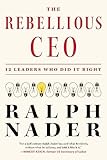Our most recent media alert, Silence Of The Lambs, created a small ripple in the Guardian universe. We had asked why even the paper’s most radical journalists, Seumas Milne and George Monbiot, are silent on the propaganda role of the liberal media, particularly the Guardian, in propping up power. We noted that, in this regard, they are no different from other journalists. Of course, it is obvious why any corporate employee would be reluctant to criticise his or her employer in public; but our primary intention was to shine some light on an issue that is never discussed. After all, the Guardian sells itself as a vanguard of liberal journalism, holding power to account and hosting wide-ranging debate. The reality is different.
Former Guardian and Observer journalist, Jonathan Cook, shares our incredulity:
It really is astounding that we still need to talk about this as though it is controversial – though, of course, we do.
Everyone accepts that the mainstream media are businesses. As such they are out to maximise profits, increase their brand visibility and market share, and to develop the best possible public image they can (though this last aim usually takes a back seat to the other commercial imperatives if they conflict). This is true for all large businesses…
With that context, we can see that Seumas Milne – however nice, open-minded, progressive he is as an individual – cannot speak honestly about the media or his role in it. It’s rather like the scene in Ricky Gervais’ film The Invention of Lying when the Cola rep tastes his company’s drink in a TV promotional ad and admits (because he is incapable of lying), “Oh, that’s rather sweet”. it’s funny precisely because we know that’s exactly what no Coca Cola employee could ever dare do publicly. It would be career suicide. Milne and Monbiot’s situation is no different. (Email to Media Lens, January 25, 2012)
Further support for our attempt to boost public discussion came from a rather surprising source: Michael White, the Guardian’s assistant editor. In a piece titled, “Media Lens shows it doesn’t get the whole picture”, White wrote that our latest alert “is largely devoted to badmouthing the Guardian.”
The pejorative use of ‘badmouthing’ signalled that however reasoned and well-referenced our criticism of the Guardian might be it was, as usual, to be dismissed as angry invective. The familiar litany of stock mainstream responses to our work was rolled out: We don’t “do subtle”. Rather, we exhibit ‘strident conceit’, “narcissism”, and “mean-spirited nit-picking”. We are also “naïve”’, guilty of “artlessly framing” our own narrative “as truth”. Ours is a “childishly apocalyptic polemic”. We think we “know how the world works” but we “may grow out of that”. Affable, but, in fact, effortlessly patronising, White noted that Media Lens was set up in 2001 by “a couple of bright and determined young graduates”. Mature students, perhaps, given that we were both a year shy of 40 at the time. As with so much mainstream reaction over the years, White saw what he wanted to see – nothing really meriting serious attention. But as many readers observed, he was paying us attention at some length – something didn’t add up!
“This week’s attack,” White continued, “focuses on colleagues of mine, specifically George Monbiot and Seumas Milne, two of the Guardian’s more radical leftwing contributors. In effect, Media Lens is saying, they trim their sails and pull their punches to accommodate their paymasters, their presence in the paper’s Comment columns little more than a gesture to pluralism or dissent.”
He added: “OK, if you say so. Most people have to trim their views at one time or another, though I have watched journalists smuggling dissenting opinions into even the Murdoch press with admiration for years.”
Yes, most people have to trim their views. But media omissions and bias go far beyond trimming, and far beyond the self-restraint required in everyday life. As we will see below, our point is that whole areas of thought and discussion are demonstrably off the agenda for corporate journalists with disastrous consequences for our species. If this is a grand claim, it is one that predicts that it will be perceived as grandiose by journalists and media consumers trained to view even the most pathological aspects of our society as ‘normal’.
It seems our “nit-picking” focus also ignores the blocks on reactionary views. Describing himself as “an elderly herbivore of moderate opinions”, White complained that it had been difficult to place a defence of Blair in the paper when the former prime minister first gave evidence to the Chilcot inquiry:
There was a distinct lack of pluralism in the media that day, but I doubt if Media Lens spotted it.
This could be a sign of the Guardian’s intolerance. Or a sign that even it has abandoned its attempts to defend the indefensible (having urged citizens to vote for Blair, even after his worst crimes had been thoroughly exposed, in 2005).
This, White’s solitary red-herring, was supposed to undermine our detailed argument that the corporate nature of the mass media tends to produce performance that defends and furthers the goals of the corporate system. Apropos of nothing much, White completed his fairy tale account of mainstream radicalism with the estimation that Channel 4’s Jon Snow “does more good for progressive attitudes than half a dozen Pilgers”. Ironically, it was our own unpleasant confrontation with the reality of Snow’s self-professed ‘pinko-liberalism’ that helped motivate us to start Media Lens.
But White’s real ‘worry’ about Media Lens “which disinclines me to seek wisdom on its site very often is that it betrays the narcissism of small difference that is so destructive on the left.”
Again, despite serious evidence supplied over ten years, White dismisses our critique as trivial – the “narcissism of small difference,”
Jonathan Cook concluded his reaction to White’s article:
What to do when an “irritant” unsettles you? Unleash the ad hominems – lots of references to how “childish” you are – while trying to shore up his and the Guardian’s credentials as worldly and self-deprecating. It’s a master-class in how to belittle an argument and avoid dealing with it entirely.
As for the “they may grow out of it”, doesn’t that cut both ways? I was one of the lentil-eating Guardianistas in my early 20s and a devoted Michael White wannabee in my 30s, when I was working there. I’m now 46, seen a bit of the world, and sense I may be nearly all grown-up. And my verdict: they’re starting to run scared.
Keep up the good work. (Email to Media Lens, January 27, 2012)
Readers Respond – And The Return Of Monty Python
Scores of readers responded in the Guardian Comments section below White’s online article. To his credit, White also joined in, describing the responses as ‘a decent spread.’ In truth, White received a pummelling – responses favoured our position by about 10 to 1.
While White’s five follow-up posts elicited a grand total of four ‘Recommend’ clicks from readers, by far the most popular comment, recommended by 82 readers, is this one:
If medialens are so “wrong” and naive and “don’t get it” then why the long article?
The reason is that they are right.
Assange smears, Iran nukes lies, Chavez smears, silence on the sky high obscene pay of the guardian executives and editor, the tax avoidance of the gmg [Guardian Media Group], all examples of Guardian hypocrisy.
The guardian gives the impression of being radical yet it is just a slightly less right wing media outlet publishing pro war establishment propaganda.
Why didn’t the guardian call the illegal Bombing of Libya, the terrorism we support and create in Syria, the war crimes in iraq, the war crimes of Israel, the war crimes in Afghanistan, the illegal murders and torture in Pakistan by the USA, all by the name they are. War crimes. And call for those that carried them out and those who printed propaganda about them, to be tried for crimes against humanity? Because it was and is complicit.
The guardian is yet another establishment outlet and medialens exposed you and you don’t like the truth. Hence the smear article here.
In one post, White responded to a reader who had challenged him to justify his use of “nit-picking” to describe Media Lens:
Nit-picking”? This started with my surprise that ML thinks it helpful to go after two Guardian colleagues whose views are more closely aligned with ML’s own that most of us are. I’m not the only person posting on this thread who has had this feeling.
That strikes me as both “naive” and lacking “the bigger picture” though it is common enough among small groups – left, right and centre – who feel they have a unique and righteous insight into virtue. It’s the Popular Front of Judea joke in the Monty Python sketch in Life of Brian.
The Monty Python sketch did provide an amusing satire on left infighting. But like the standard association of ‘Big Brother’-style thought control with totalitarian regimes, the idea that toxic infighting is the preserve of leftists – a sign of their naïve, unworldly idealism – is an ironic product of mainstream propaganda. Thought control is far more important in ostensibly free societies like our own, while totalitarian regimes rely far more on force. Similarly, mainstream intolerance is such that progressive, compassionate ideas and aims are efficiently shredded and thrown out. Thus, for all its disagreements, the left has made far more progress in developing enlightened, compassionate analyses than the mainstream.
Consider, for example, that the left does not simply seek and demand more for the poor as a response to the insatiable greed of elite bankers. Rather, it calls for a society based on respect and compassion for all, rooted in the enlightened position that the suffering of every individual is of exactly equal importance (some, rightly, extend this compassion to all sentient beings).
Note also that while petty infighting based on rivalry, clashing egos and the like, is, of course, needlessly destructive, some disagreements on key issues can be a vital part of a process of development and maturation.
Imagine if three characteristics follow from the fact that the mass media is corporate in nature; i.e., that it is profit-maximising, owned by parent corporations and/or wealthy individuals, heavily dependent on corporate advertising, on subsidised state and business news sources, and so on. Imagine if this means that:
1) The corporate media are deeply dependent on, and closely allied to, other corporations responsible for promoting environmental and human rights disasters, tyrannies, wars and other horrors around the world.
2) Profit-maximising within this fiercely competitive media system – requiring, as it does, that the business be sold hard to both readers and advertisers, and to corporate and state allies with the power to heavily punish and reward – makes any criticism from vulnerable, employed journalists extremely threatening, unpopular and unlikely.
3) As a result, even ‘liberal’ journalists avoid criticising the corporate product in any way in front of the all-important customers and advertisers. Moreover, they feel reluctant to criticise other ‘liberal’ media corporations (potential future employers). They also feel reluctant to criticise the corporate media system as a whole for fear of being tarred as a liability, ‘one of them’, by all potential employers.
Theory is one thing, but if we are to test the truth of these claims honestly, we simply have to do so in reference to the performance of the best journalists. In this case, to ask if even Milne, Fisk and Monbiot have seriously discussed whether a corporate media system is able to report honestly on the corporate system is not ‘nit-picking’ or ‘naïve’ infighting at all. It is an important attempt to show that discussion on key issues is currently shut down right across our culture.
In an age of impending climate disaster – when corporate media are doing such a good job of presenting the suicidal status quo as ‘normal’, and all but ignoring the astonishing and massive corporate efforts to prevent vital action on climate change – this discussion might actually be considered crucial to human survival.
If we are right, then Milne and Monbiot are making a terrible mistake in encouraging readers to perceive this pathological – even anti-life – media system as a source of hope. To lead hope down a blind corporate alley at this late stage may prove to be the final nail in the coffin.
Post Script
Seumas Milne has responded to an email from us asking whether Michael White speaks on his behalf. Milne told us: “of course he doesn’t”, adding that he didn’t know White would respond. He also told us, and a number of readers, that he is still some way off full fitness, that he still intends to answer our original points and he apologises for not having done so. We sent him our sincere best wishes for a full recovery. We note, however, that Milne’s failure to respond to our challenges pre-dates his recent health problems, stretching back to 2001.
George Monbiot has not responded to our alert.










